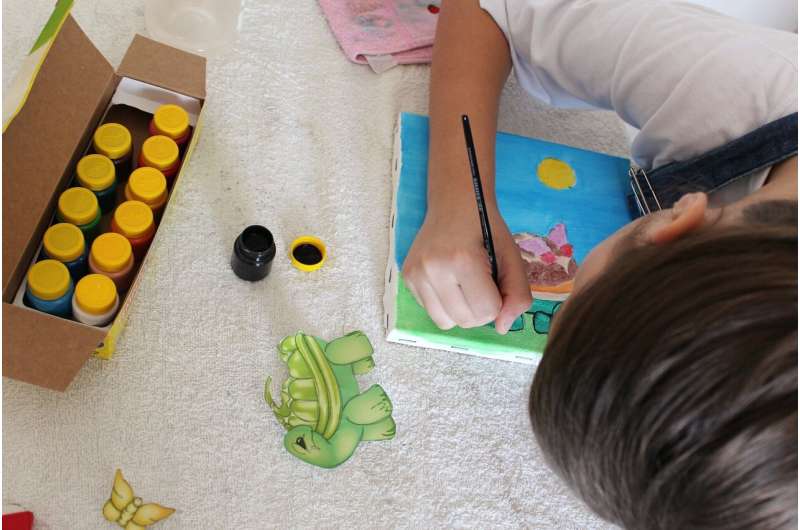Credit: Pixabay/CC0 Public Domain
An article in Campbell Systematic Reviews reveals that there are surprisingly few high-quality studies that have examined the effects of reducing adult/child ratios and group sizes on factors such as young children's psychosocial adjustment, development, and well-being in early childhood education and care.
The review analyzed evidence from 12 studies, two of which were randomized control trials, representing eight different populations.
Although investigators noted that it's not possible to draw any definitive conclusions, results tentatively suggest that fewer children per adult and smaller group sizes may increase process quality—defined as more positive adult/child and child/child interactions, less coercive and controlling adult interference, and less aggressive and more prosocial child behavior.
"Findings from the present review may be seen as a testimony to the urgent need for more contemporary high quality research exploring the effects of changes in adult/child ratio and group size in ECEC on measures of process quality and child outcomes," said corresponding author Nina Thorup Dalgaard, Ph.D., of Vive, the Danish Center for Social Science Research. "Despite the fact that most stakeholders agree that adult/child ratio and group size are important parameters, it is surprising that studies of the effects of changing these are on average 30 years old."
More information: Adult-to-child ratios and group sizes in early childhood education and care need more high-quality research, Campbell Systematic Reviews (2022). DOI: 10.1002/cl2.1239
Provided by Wiley
























